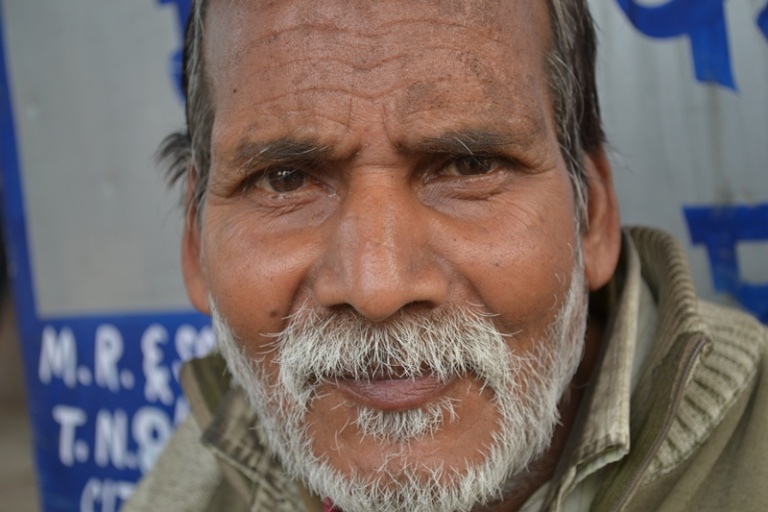COVER STORY
The Ministry of Social Justice and Empowerment has proposed that in order to facilitate proper maintenance of the old the regulatory mechanism must be made more stringent. Will this improve the situation of the elderly?
The New Leam Staff
There are over 104 million senior citizens in our country and with the passage of time we are finding that numerous people who are under this category are either not being treated properly by their families or are finding it challenging to claim their rights. Census findings have showed us how a lot of senior citizens get abandoned by their families, have lack of people to care for them, there is an absence of infrastructural comforts, absence of redressal mechanism and an overall negligence of their dignity. In order to approach a solution to this concern India is debating about whether the time has come to broaden the definition of ‘children’ in regard to the maintained of people falling under the senior citizen group.

The ministry of social justice and empowerment has come up with a proposition that the present Rs 10,000 ceiling must be removed and wishes to unite the amount to the sources of income of the senior citizens and their offsprings.
The ministry has recommended the broadening of the definition of ‘children’ to also include adopted /step children/sons-in-law/ daughters-in-law/grandchildren and even minors represented by their legal guardians. In the present scenario the term includes only sons, daughters, and grandchildren and excludes minors.
India has a large number of senior citizens and the census conducted in 2011 revealed that their number was close to 104 million. It is paradoxical that irrespective of their large population, this section of the population finds it difficult to live with peace and financial dignity.The information that came from many civil society organisations and NGOs has shown that senior citizens are a disadvantaged section and there was an immediate requirement to look into the issues faced by the elderly and contemplate on their allowance and Maintenance.
Our neo-liberal world is one where physical vitality, external fitness and relentless rat race is common and within this the elderly are a misfit. We look at them as useless, inadequate, and vulnerable and thus denial of their freedom and respect are an everyday process in society. Those who have become old are the bearers of immense wisdom and knowledge; they can illuminate our path towards the future.

The contemporary scenario demands that we revisit the conditions for payment of the allowance under the Maintenance and Welfare of Parents and Senior Citizens (MWPSC) Act, 2007. Post this Act it was believed that now senior citizens could be empowered. They could now file applications and claim maintenance and seek redressal if their property was forcefully takes away from them. Apart from broadening the definition of children, the ministry of social justice and empowerment has suggested that any individual who has the means should take care of the senior citizen or parent.
The maintenance of senior citizens till date has been the responsibility of children or caretakers only if such individuals had claims on the property or were likely to inherit it but it has been proposed that now any person with the infrastructural ability shall have to take care of the senior citizen. The legislation enables the senior citizen to claim his/her rights and work for a life of dignity but the need of the moment is therefore that the government should ascertain the implementation of the law and help spread awareness of its provisions. Improper treatment of the elderly, denial of property rights, negligence during bad health, inhuman treatment are being seen in various corners of the country. We assume that a legal mechanism will enable the senior citizens to lead a better life.
Despite the significance of the legislation and the kind of comforts that it can bring into the lives of the senior citizen it is time that we also deliberate on our socio-ethical decadence and how our modern priorities are turning hostile to the needs of not only the elderly but to most vulnerable groups of society.
Our neo-liberal world is one where physical vitality, external fitness and relentless rat race is common and within this the elderly are a misfit. We look at them as useless, inadequate, and vulnerable and thus denial of their freedom and respect are an everyday process in society. Those who have become old are the bearers of immense wisdom and knowledge; they can illuminate our path towards the future.

Tomorrow we will all be old and fragile so why do we have so much of indifference? Why can we not absorb the elderly in fields where not their bodies but their hearts and emotions are prioritised? There are seldom any public spaces friendly to the elderly, public transport is risky for the fragile bodies and in our nuclear households there is nobody to give them company.
We have grown up hearing stories from our grandparents, playing carefree in their arms. Tomorrow we will all be old and fragile so why do we have so much of indifference? Why can we not absorb the elderly in fields where not their bodies but their hearts and emotions are prioritised? There are seldom any public spaces friendly to the elderly, public transport is risky for the fragile bodies and in our nuclear households there is nobody to give them company. Denial of dignity to the old is a single concern amidst a great socio-cultural crisis and the need of our times is to build a culture that accommodates and grows upon the experiences of the old to enrich the modern.
One cannot deny the reality of ageing and the momentariness of youth- today somebody is in a particular condition and tomorrow it would be my chance. We shall strive for a culture that is human and empathetic not aloof and insensitive. Children of the world shall relate to their elders in the same manner in which their elders relate to the old.
Did you like the story? Go ahead and support the cause of independent journalism. DONATE NOW













